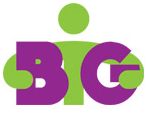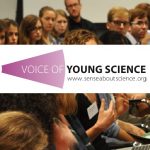
The Little Event is a training session for people who are new to STEM communication.
Whether you work in a science centre or museum, volunteer for a festival, are involved in university outreach, or do anything else to engage people with science, technology, engineering and maths.
The introductory sessions will focus on developing the different skills that are useful in STEM communication, and they are delivered by experienced science communicators.
The 2023 Little Event will be held online over two days and are designed to work together to be booked as a package.
The programme includes sessions on Evaluation, Managing Projects, Presenting, Science Capital, and Careers and will include plenty of networking time.
Session 1: Thursday 19 January, 3- 6:30pm
Session 2: Saturday 21 January, 9:00am – 1:15pm
BIG members: cost £50. Non-members: cost is £85 and includes BIG Membership for 1 year. Book here: https://www.big.uk.com/event-5023798
If you would like to come to the Little Event for free, BIG offers bursaries to attend which will cover your fees as well as some expenses.
Applications close on Sunday 11 December 2022. See https://www.big.uk.com/event-5030137 to apply or https://www.big.uk.com/bursary for more information.
 Training for early-career STEM communicators from BIG
Training for early-career STEM communicators from BIG VOICES: STEM plus Music – Online conference 25 September 2022
VOICES: STEM plus Music – Online conference 25 September 2022 Online event: Citizen Science for Policy and Practice -Thursday 20 October 2022
Online event: Citizen Science for Policy and Practice -Thursday 20 October 2022 Standing up for Science workshop for STEM & social science early career researchers
Standing up for Science workshop for STEM & social science early career researchers










 New CMWH paper on maternity care
New CMWH paper on maternity care From Sustainable Research to Sustainable Research Lives: Reflections from the SPROUT Network Event
From Sustainable Research to Sustainable Research Lives: Reflections from the SPROUT Network Event REF Code of Practice consultation is open!
REF Code of Practice consultation is open! ECR Funding Open Call: Research Culture & Community Grant – Apply now
ECR Funding Open Call: Research Culture & Community Grant – Apply now ECR Funding Open Call: Research Culture & Community Grant – Application Deadline Friday 12 December
ECR Funding Open Call: Research Culture & Community Grant – Application Deadline Friday 12 December MSCA Postdoctoral Fellowships 2025 Call
MSCA Postdoctoral Fellowships 2025 Call ERC Advanced Grant 2025 Webinar
ERC Advanced Grant 2025 Webinar Update on UKRO services
Update on UKRO services European research project exploring use of ‘virtual twins’ to better manage metabolic associated fatty liver disease
European research project exploring use of ‘virtual twins’ to better manage metabolic associated fatty liver disease